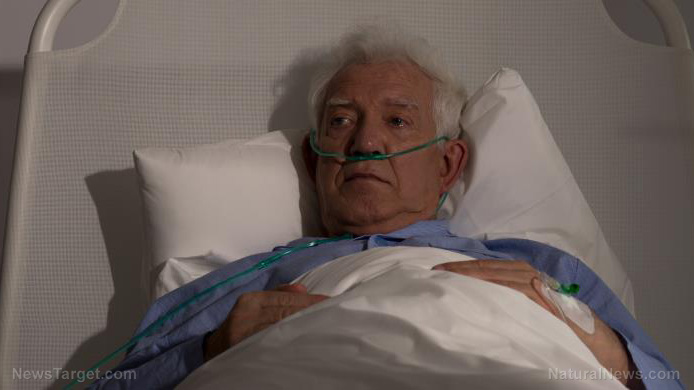 Parler
Parler Gab
Gab
Many elderly nursing home residents without mental illness are given antipsychotics just to keep them quiet and docile
A shocking number of prescriptions from 2011 were found by the inspector general to not meet federal standards, which has harmed and killed many nursing home residents who were not even mentally ill and never should have received the drugs in the first place. "The nursing home industry has used for decades these antipsychotic medications as a way to sedate our most frail and vulnerable citizens," said Martha Deaver, an Arkansas-based advocate for nursing-home residents and their families. "This is an issue that could have been remedied. Many lives would have been saved if CMS had done their job, through different administrations." The new plan at CMS, which was already supposed to have been monitoring drugging practices at nursing homes, is to conduct targeted audits of nursing homes with a pattern of incorrect schizophrenia diagnoses. Those found to be inappropriately drugging residents will see their star rating drop on Medicare's Care Compare website. The inspection reports will also be made public, even if the nursing homes in question are disputing their claims. Previously, these reports were not made public until the dispute process was complete, a process that can take two months or longer. A nursing home's star rating would not drop until after the dispute process was complete, but in the meantime the public would be able to see the report and decide whether or not the facility is a proper fit. There are also efforts afoot by the federal government to crack down on antipsychotic overuse among legitimate mental patients. In 2012, CMS introduced a program specifically for people with dementia to help them cut back on the use of antipsychotic drugs. Four years later, CMS announced that it had met its goal of cutting such prescriptions by 30 percent, though the entity is still encouraging nursing homes to continue aiming for reduced use of these mind-altering medications. The latest news about dangerous and ineffective Big Pharma drugs can be found at BadMedicine.news. Sources for this article include: WSJ.com NaturalNews.comWhat SPREADS CANCER faster: Chemotherapy, radiation or Covid vaccines?
By S.D. Wells // Share
Brianne Dressen: Many vaccine-damaged people are killing themselves
By Kevin Hughes // Share
Defective brands of chemo drug still being used to “treat” leukemia in children worldwide
By Belle Carter // Share
Moderna plans to release mRNA vaccines for other diseases, including cancer
By Arsenio Toledo // Share
Governments continue to obscure COVID-19 vaccine data amid rising concerns over excess deaths
By patricklewis // Share
Tech giant Microsoft backs EXTINCTION with its support of carbon capture programs
By ramontomeydw // Share
Germany to resume arms exports to Israel despite repeated ceasefire violations
By isabelle // Share










